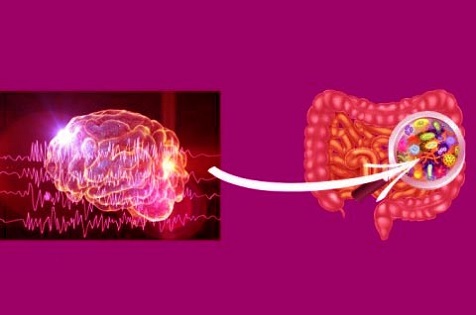Nikhil Prasad Fact checked by:Thailand Medical News Team Aug 06, 2024 8 months, 2 weeks, 6 days, 7 hours, 55 minutes ago
Medical News: Traumatic brain injury (TBI) is a major global health issue, with millions affected each year. Recently, researchers from Aristotle University of Thessaloniki in Greece explored a novel approach to mitigate the devastating effects of TBI - probiotics. This
Medical News report delves into the fascinating study findings, highlighting how these beneficial bacteria could revolutionize TBI treatment.
 Probiotics can help mitigate certain traumatic brain injury issues.
Understanding Traumatic Brain Injury
Probiotics can help mitigate certain traumatic brain injury issues.
Understanding Traumatic Brain Injury
Traumatic brain injury occurs when an external mechanical force disrupts normal brain function. Common causes include traffic accidents, falls, gunshot wounds, and sports injuries. TBI can lead to temporary or permanent disability, decreased lifespan, and even death. Globally, approximately 69 million people suffer from TBI annually, with increasing incidence in middle and low-income countries due to rising motor vehicle use.
The Gut-Brain Connection
The human gut microbiota consists of trillions of microorganisms, including bacteria, fungi, and viruses, that reside in the gastrointestinal tract. These microorganisms play a crucial role in maintaining health by aiding digestion, producing vitamins, and regulating the immune system. There is a bidirectional link between the gut and the brain, known as the gut-brain axis, which facilitates communication through neural, hormonal, and immune pathways.
Impact of TBI on the Gut
Traumatic brain injury not only affects the brain but also has significant repercussions on the gut. TBI can lead to gut dysbiosis, an imbalance in the microbial community, which in turn exacerbates brain injury. Dysbiosis results in the proliferation of harmful bacteria and a reduction in beneficial ones, disrupting gut barrier integrity and leading to systemic inflammation.
Studies on animal models have shown that TBI can cause rapid and significant changes in the gut microbiota. For instance, Houlden et al. found a correlation between injury severity and gut dysbiosis in mice, with notable decreases in beneficial bacteria such as Prevotellaceae and increases in harmful ones like Peptococcaceae.
Probiotics to the Rescue
Probiotics are live microorganisms that, when administered in adequate amounts, confer health benefits to the host. They have been shown to modulate the gut microbiota, enhance intestinal barrier function, and reduce inflammation. Given the gut-brain connection, probiotics have emerged as a potential therapeutic strategy for TBI.
In recent years, several studies have explored the effects of probiotics on TBI-induced gut dysbiosis. For example, Li et al. demonstrated that administering Clostridium butyricum to mice with TBI significantly ameliorated neurological dysfunction, brain edema, and gut barrier permeability.
Promising Results from Animal Studies
Animal studies have provided compelling evidence for the benefici
al effects of probiotics in TBI. In a mouse model of TBI, Lactobacillus acidophilus was found to improve neurological outcomes, reduce brain edema, and restore gut barrier function. Similarly, Bifidobacterium lactis, when combined with a brain protein, significantly reduced secondary inflammatory responses and enhanced blood-brain barrier integrity in rats.
These findings suggest that probiotics can help restore gut health and mitigate TBI-related complications, offering a promising therapeutic avenue for patients suffering from brain injuries.
Human Studies Show Positive Outcomes
Human clinical trials have also shown encouraging results. A randomized controlled trial involving severe TBI patients revealed that those who received probiotics along with early enteral nutrition had a lower incidence of infections, shorter ICU stays, and reduced mechanical ventilation duration. Another study demonstrated that probiotic supplementation significantly decreased inflammatory markers and improved clinical outcomes in TBI patients.
Despite these promising findings, the research on probiotics for TBI is still in its early stages. More large-scale, well-designed clinical trials are needed to confirm these results and determine the optimal strains, dosages, and duration of probiotic treatment.
Conclusions and Future Perspectives
As TBI continues to pose a significant public health challenge, innovative therapeutic strategies are urgently needed. Probiotics offer a promising approach to managing TBI-related complications by restoring gut health and reducing systemic inflammation. The study findings highlight the potential of probiotics as an adjuvant therapy for TBI, paving the way for future research and clinical applications.
The study findings were published in the peer-reviewed Journal of Clinical Medicine.
https://www.mdpi.com/2077-0383/13/15/4546
For the latest on traumatic brain injury, keep on logging to Thailand
Medical News.
Read Also:
https://www.thailandmedical.news/news/probiotic-lactobacillus-acidophilus-protects-the-intestines-from-inflammation
https://www.thailandmedical.news/news/probiotics-show-promise-for-kids-with-irritable-bowel-syndrome
